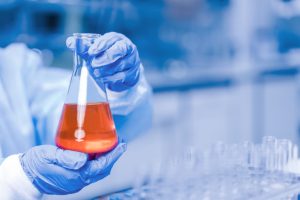Lonza says cell culture media is no longer simply a consumable but a critical part of the biomanufacturing process as it modifies its supply deal with Sartorius.
In December 2012, contract development and manufacturing organization (CDMO) Lonza teamed up with bioprocessing equipment and consumables supplier Sartorius Stedim Biotech (SSB) for the supply and distribution of media and buffers used in the manufacture of protein-based therapeutics and vaccines.
A shift in the arrangement now sees supply continue but under non-exclusive terms, with customers of both companies able to source media products for their specific needs.

Cell culture media is no longer simply a consumable but a critical part of the biomanufacturing process, says Lonza. Image: iStock/Eugeneonline
“As new generations of complex biologics move towards commercial production, media is no longer viewed a consumable but a critical part of the package we offer customers developing next-generation therapies, and we are investing accordingly in this area,” said Marc Funk, COO Lonza Pharma & Biotech.
“Our collaboration over the past years has greatly benefited our customers and both companies,” added Sartorius Executive Committee member Reinhard Vogt. “The adapted agreement now reflects the dynamics of this rapidly evolving market, providing additional strategic flexibility for both partners.”
The two firms have also entered into a further long-term agreement, with Sartorius being a preferred supplier for specific Lonza projects.
Lonza in Israel
In further Lonza-related news, the CDMO opened its Collaborative Innovation Center (CIC) in the Haifa Life Science Park, Israel this week.
The 1,000 m2 facility will act as a hub for partnerships to identify and accelerate new solutions for biopharma manufacturing and includes lab space equipped with bioprocessing and analytical equipment available for collaborating partners to use as a test bed for new ideas and technology.
“Israel has established itself as a point of convergence for digital technologies, engineering and life sciences, providing new solutions for healthcare in particular,” said Funk. “We want to expand this potential to reimagine the development and manufacturing of future medicines by working with academic institutions, teaching hospitals and startups.”
